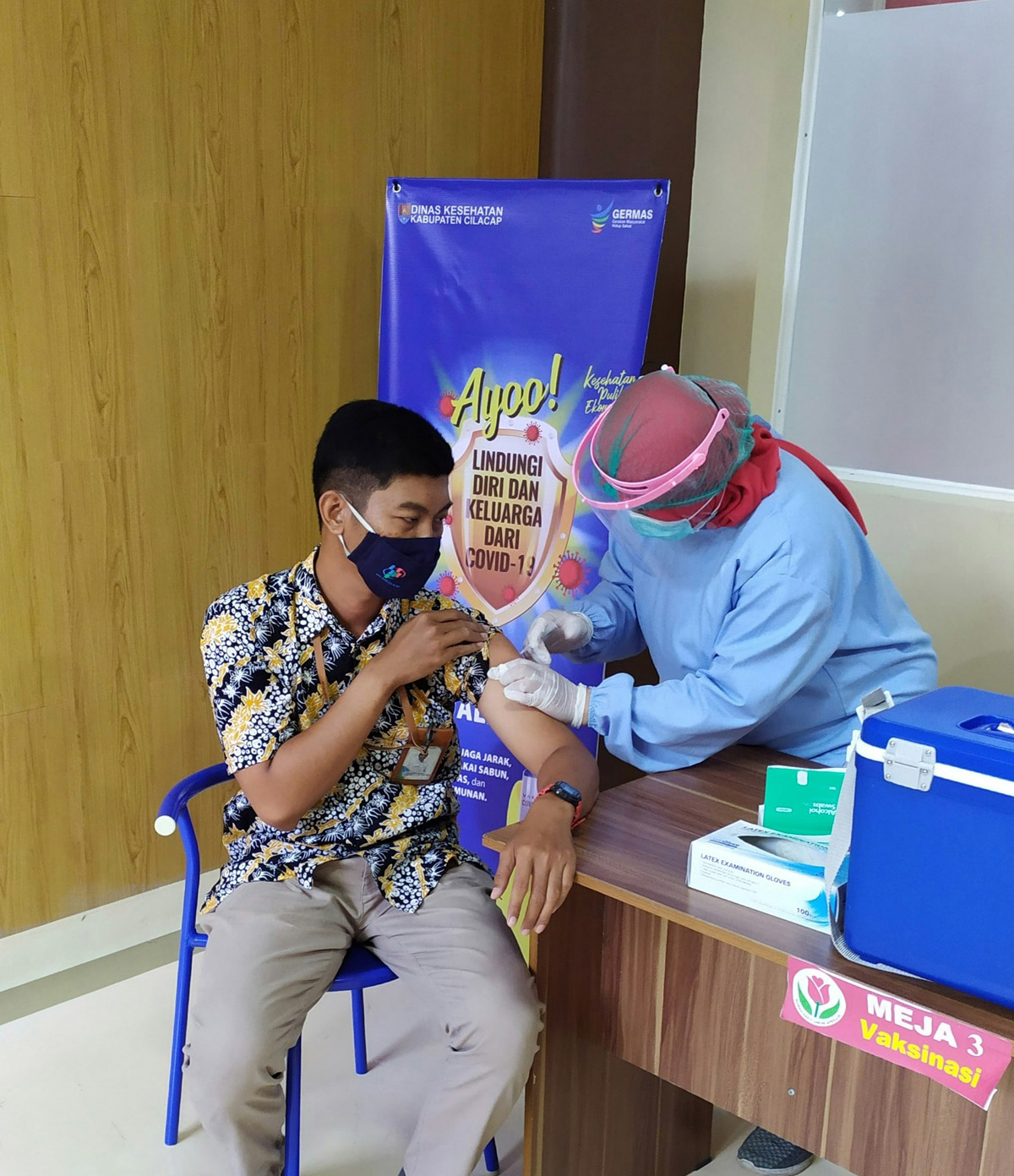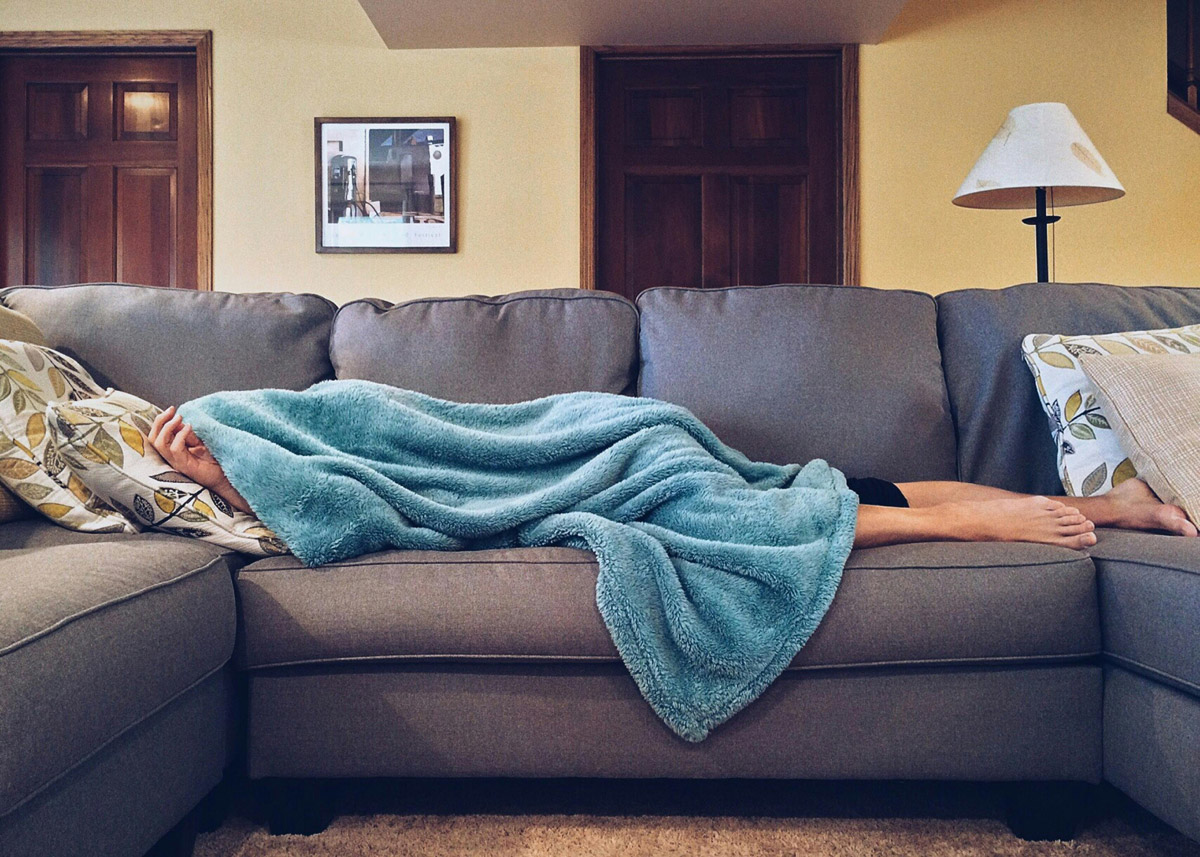
As we’ve been covering, the President and I have each had recent bouts of Covid. Cases have been increasing across the board in a big summer wave, thanks to new variants scientists have christened LB.1 and FLiRT. (I guess we ran through the Greek alphabet.) Though it definitely knocked me on my patootie, it was never so severe that I needed to go to the hospital. I credit that entirely to taking Paxlovid, and staying up to date on the Covid vaccines. Now, unsurprisingly, the results of a new study show that the current best defense we have against developing Long Covid is vaccination. More precisely, the vaccine can lower your risk of Long Covid by 72%. I like those odds. Prevention broke down key points from the study for us:
Get vaccinated: That’s the main takeaway from a study published in The New England Journal of Medicine. For the study, researchers analyzed medical records of nearly 450,000 people from the Department of Veterans Affairs health system who had COVID-19 diagnosed between March 1, 2020, and Jan. 31, 2022. Those patients were compared with around 4.7 million people who weren’t diagnosed with COVID-19 during the same time. The researchers found that the lowest rates of long COVID (3.5%) were in people who were vaccinated against COVID-19. Of the people who were unvaccinated, 7.8% developed long COVID.
A 72% risk-reduction: The study covered the original COVID-19 strain, along with Delta and Omicron strains. (The variants circulating now — like LB.1 and FLiRT variants — are off-shoots of the Omicron strain.) The rates of long COVID dropped over time, regardless of whether people were vaccinated, but the researchers said that was likely due to a combination of changes in the virus and other factors. Overall, the researchers found that the vaccine was responsible for nearly 72% of the drop in cases.
How the vaccine helps: “Current findings indicate that it [long COVID] has to do with the creation of chronic inflammation,” says William Schaffner, M.D., an infectious disease specialist and professor at the Vanderbilt University School of Medicine. Having COVID-19 can cause a strong inflammatory response, especially if you have a severe case, he says. “If the vaccine tamps down on that inflammatory response, the risk of long COVID is also reduced,” Dr. Schaffner says. Infectious disease expert Amesh A. Adalja, M.D., senior scholar at the Johns Hopkins Center for Health Security, agrees. “Vaccination induces one’s immune system to mount a robust response against the virus,” he says.
Again, get vaccinated: The Centers for Disease Control and Prevention (CDC) recently recommended that all Americans six months and older get an updated COVID-19 vaccine in the fall when it becomes available, whether they’ve been vaccinated against the virus in the past or not. Doctors say that’s important, both to protect against severe disease and to lower your risk of developing long COVID, regardless of whether you’re considered high risk for severe disease or not. “We still don’t really understand which individuals are eventually going to develop long COVID,” Dr. Russo explains.
Treatment options: As of now, there are no specific treatments for long COVID. “It is important to realize that long COVID is an umbrella term and not a specific disease process,” Dr. Adalja says. “For treatment to be successful, it will be necessary to actually untangle all the different things that are grouped under this umbrella. There may be different treatments for different types.” If you suspect that you have long COVID or have been diagnosed with the condition, Dr. Schaffner recommends trying to be seen at a specialized long COVID clinic. There, doctors who regularly treat patients with the condition should be able to offer a tailored approach to your treatment based on the latest research and what they’ve seen be effective for patients.
Get vaccinated! There’s still so much unknown about Long Covid, as the doctors mention above. You don’t know how it may affect you, coupled with the fact that doctors are still figuring out the best treatments. When the new boosters came out last fall, a good friend of mine said, “I’ll be ok without it this time.” He got Covid less than a month later, and after months of many ailments, specialists, and diagnoses, he’s now in the Long Covid program at NYU Hospital. He’s a man in the prime of his life, yet completely withered under Long Covid. Thankfully he’s getting better and better, but I cannot stress enough how much advocating he had to do for himself to land on treatment that actually started to help his symptoms. That took a lot of effort when he was already in a compromised state.
And to reduce the risk by 72%, all we have to do is get a shot? That’s a no-brainer to me.
Photos credit: Fadil Fauzi/Unsplash, Pixabay/Andrea Piacquadio/Pexels and via Instagram













Well, I just got my booster yesterday and my arm is killing me. But its good to know its worth it.
That’s normal. Good for you for taking a booster.
The problem is getting an updated booster outside the US. So, I am staying away from large groups, public transportation, and mask up when needed… I got 4 shots in total so far.
Is it a new booster? Are they out yet?
Warning for those of you in the Southeast. I had covid last week as well. I am in NC. I only got tested because my doctor suggested it. I had an appointment with my chiropractor for a neck thing last Tuesday and he was picking on me saying I looked like shit. (We have that type of relationship and it was in good fun and I did look like shit.)
I had sinus pressure and you can read a headache on my face a mile away. He asked if I had any other symptoms and I told him a runny nose but I have allergies in Eastern NC, so that is nothing new. He suggested a covid test just in case and it was positive.
I am telling you, never in a million years would I have thought that was even a possibility. Other than the sniffles, a sinus headache/pressure, and fatigue, I had zero other symptoms. I am also 42 with a 6 year old and don’t sleep well to begin with, so fatigue is my default setting.
This is the 5th time I have caught it (vaxxed and boosted but my hubby is a first responder and my kid was in preschool, so I never stood a chance) but the first time I didn’t at least have a fever or some sort of sore throat cold or flu like symptoms.
I will be getting mine soon with my flu shot. I don’t t care how many shots I have to get to be safe.
So.. I am
a member of the elder clan. I dutifully got the vaccine in 2021 …. And my health plummeted. Three years later .. I’ve had two ablation surgeries, added a Pacemaker, a hip replacement surgery and two wrist surgeries. I cannot get shoulder replacement surgery as my auto immune arthritis has created such deterioration and is is too big a risk. So for me the vaccines were a problem.
The upside is that I’ve never had Covid.
We live in interesting times.
I wish they do a study of “vaxxed to the max” folks who had chronic autoimmune disease beforehand…because everyone I know who fits that profile IS suffering from long covid…including myself 😒
Uggghh, that’s truly unfortunate. I have family members I believe are in the same boat, although none of the doctors will confirm. Chronic auto immune issues run in my family. It’s distressing to hear, and I hope for a positive outcome for you. I told my family (I am also vaxxed to the max) – that I know I’m a guinea pig as far as shots are concerned. So far for me, no terrible immune response, and I’m hoping it remains the same. Due to the immune issues, some in my family absolutely refuse to get the shots, and I’m hoping not to their detriment. It’s a tough call. But if they remain vigilant with washing hands etc staying away from sick people, awareness of surroundings – who knows?
I was never vaccinated because of some health reasons (I usually don’t tell people this) and 🤞🤞🤞 I’ve never had covid. One of my friends with a similar condition nearly died straight after getting her vaccine so I used caution. Any sniffle I’ve had, I got an immediate pcr test and isolated. No covid. I have had two respitory illness in three years, neither covid. So I feel quite lucky. I always masked (still do on public transport or in crowds) and hand wash constantly.
I’m really sorry to hear you’ve got long covid. I’m also interested in long term studies of those of us with chronic immune issues. I have Primary Sjogren’s and have had a total of 9 vaccinations for Covid. Some made me feel awful and some didn’t. I’m just now recovering from my second bout with Covid and so far it’s been mild. 🤞🏻 SARS-Covid is a very idiosyncratic virus.
Vaxed x3 before catching Covid. Have had a dry cough ever since, over 2 yrs now. CT of chest neg
Vaccines work? What an outlandish notion! /sarcasm
I am vaxxed to the max—got a vaccine in November and another in June, in addition to the others before that. I have only had covid once and now have chronic dry eyes. I have to use $40 drops to combat it. I really don’t want covid again because I worry what else it will do to me. I know a few people with heart conditions that did not have them prior to covid (two are in their 30s one is in his 60s). Covid is no joke and I mask up in massive crowds etc, especially in the winter.
I am bothered that we learned nothing from the pandemic and people are running around sometimes with a hacking cough or nasal congestion without a mask and without covering their nose/mouth. I guess people’s inconveniences matter more than spreading germs around. I also have informed all friends, if they are sick, cancel plans with me, it isn’t worth it period. Just common curtesy I would think.
There are some MAJOR MAJOR limitations to this study, including the fact that it only focused on the *FIRST* infection. It does not examine the impact of multiple infections! I would recommend reading this to learn more:
https://x.com/PrognosticChats/status/1814432627765489682
This really good at all